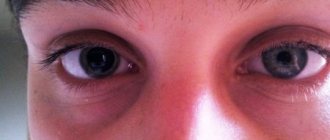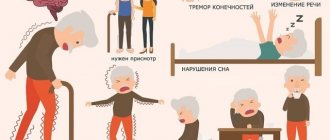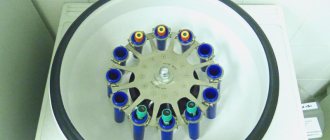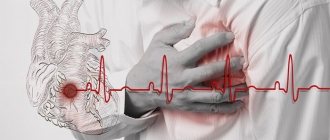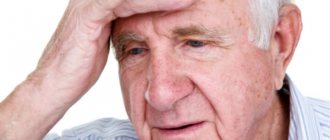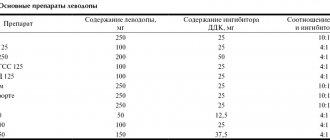Nobody likes to be sick. But there are people who experience panic fear of any disease. They suffer from nosophobia. This condition is accompanied not only by panic, anxiety, depression, but also by physical health symptoms. But this is not the main danger. A phobia is difficult to diagnose, since a person can find a lot of manifestations of various diseases and visit dozens of specialists before he understands what he is really sick with. How to be in this case? What are the ways to overcome nosophobia?
Coronavirus and nosophobia
The spread of coronavirus throughout the world has brought a huge number of changes to the lives of each of us.
We all began to use personal protective equipment, stopped going to crowded places and began to take personal hygiene much more seriously.
All this, of course, helps protect against coronavirus infection and prevents its spread, however, many of us have begun to experience a strong fear of getting sick, which for some people has developed into a real phobia.
Nosophobia - fear of getting sick
As we said earlier, nosophobia is an obsessive, anxious idea of getting sick with a specific disease, such as coronavirus, cancer, AIDS, or any other disease in general. Those who suffer from this phobia develop an exaggerated fear of the disease and are often depressingly impressed by specific cases of the disease.
Here are some of the symptoms of nosophobia:
- Exaggerated constant nervousness before any minor physical sign. The slightest deviation is considered a symptom.
- A person takes extreme measures to avoid contact with germs and viruses.
- Frequent and repeated visits to different doctors, although they may avoid them as a possible source of infection.
- There is a strong worry that the doctor will confirm their fears that they are suffering from a terrible disease and make a diagnosis.
Obsessive fears of infections and diseases become dominant and manifest themselves at the cognitive level (constant thinking about it). There are also emotional symptoms, such as experiencing dysphoric mood due to intense terror, and behavioral symptoms, such as inappropriate medical consultations.
What is nosophobia
Nosophobia is a phobic anxiety disorder, an intense fear of contracting any serious illness.
Due to the pandemic and the huge amount of information related to the epidemic, the number of people suffering from this disorder has increased. Many who were previously able to keep their fear under control by participating in social life and going about their daily routine began to experience real panic attacks during the period of self-isolation and increased information background associated with the disease.
How to distinguish between an adequate desire to protect oneself from the coronavirus pandemic and irrational fear, which is already nosophobia?
Causes and treatment
The prerequisites for the occurrence of nosophobia are the same as for other anxiety disorders - suspiciousness, emotional lability, genetic predisposition, chronic stress. In this case, the provoking factor is usually the illness or death of someone close, or an episode of illness in the patient himself.
It is important to note that if a patient has nosophobia, he can describe the symptoms of the “causal” disease very plausibly, since he actually experiences them. True, the cause of these sensations is not organic (organ damage), but psychogenic.
Nosophobia should not be considered a harmless whim that only spoils your mood. On the one hand, nosophobia as an anxiety-phobic disorder exhausts the body with constant anxiety and panic attacks, and the vegetative manifestations of the disease (tachycardia, rapid breathing, dizziness, fainting, sweating and trembling) unbalance the nervous and cardiovascular systems, causing their real diseases. On the other hand, constantly looking for symptoms of illness and excessive attention to sensations from the internal organs disrupts their automatic regulation, which can also cause an organic disease.
Nosophobia requires treatment. This condition should be treated by a psychotherapist. The specialist will find the cause of the disease and help the patient change negative attitudes, restore calm and joy of life. There is no need to endure or try to cope with the disease on your own - treatment from a professional will be effective, and the disease will no longer bother you.
The specialists of the Alliance Center for Medical Treatment have extensive experience working with nosophobia. It is not enough to influence the symptoms - it is important to find the cause of the disease, otherwise it will return again and again. Our approach to treatment provides optimal and lasting results.
Treatment of nosophobia
Nosophobia responds well to therapy, but do not underestimate this disorder and treat it as something frivolous. This is a rather serious condition that requires timely and qualified assistance from a specialist. Nosophobia is treated both with psychotherapeutic methods and with the help of drug therapy.
Psychotherapeutic uses a variety of psychotherapy methods to help people suffering from nosophobia. The key to successfully combating this condition is timely contacting a specialist and receiving professional help.
Constant and obsessive fear of getting sick
Nosophobia is often classified as a somatic symptom disorder. However, in some cases it is best diagnosed as an anxiety disorder.
High levels of anxiety usually accompany the idea of getting cancer. Most diseases, as a rule, frighten those who suffer from nosophobia, but most often panic arises due to the fear of contracting incurable cancer. Cancer is the first thing that terrifies most nosphobes. Fears increase when they hear that someone is suffering from cancer or when they read news related to health, treatment, and cancer as a cause of death. Currently, people suffering from nosophobia are panicking because of the coronavirus.
When nosophobia sufferers notice a real physical symptom, their terrible fear may cause them to put off going to the doctor to get tested. Patients with nosophobia have such a high level of panic and distress that they avoid any circumstances that might confirm that they are capable of becoming ill. They simply prefer to close their eyes and live in uncertainty. And no one will tell them how to get rid of it.
As you can see, nosophobia and hypochondria are not exactly the same thing. If you or someone you know is experiencing strong disturbing signs of nosophobia associated with the fear of one or more diseases, we recommend psychological therapy and advice from a psychologist on how to get rid of it.
Constant and obsessive fear of getting sick
Fear is natural, especially with all the information now available on the Internet about different forms and types of bacteria and viruses, parasites and fungi, exotic diseases that you have never heard of before, such as Ebola, those that you have heard of but not from every iron, such as cancer, and, of course, about newly emerging and instantly becoming super popular, such as swine flu, bird flu SARS MERS, and this year’s disease - Coronavirus.
But if all your thoughts and fears are focused on a specific illness and it begins to affect your daily life, emotional health, or ability to function as you usually do, consider seeing a psychologist. Living with extreme fear is not easy, but nosophobia is quite easily curable, especially if it is not neglected, like any other disease, however.
Author: Editorial staff of the Help-Point.net portal
Start working with a psychologist right now
Start a consultation
Tags: anxiety consultation with a psychologist cost of consultation with a psychologist psychologist online test anxiety level
Share
Comments
- Comments
Loading comments...
Previous article
Postpartum depression, symptoms and signs
Next article
Reasons for the development of nosophobia
There are 6 main causes of nosophobia. There are also a number of factors that provoke its development.
So, the causes of nosophobia:
- Traumatic memories of your own illness or prolonged observation of how a loved one is sick. Negative effects include pain, loss of the ability to move, prolonged treatment or its high cost and inaccessibility, and the need to care for someone. The situation gets worse if the disease ultimately leads to death.
- Negative experiences of diagnosis and treatment. And such cases are not uncommon. There are many stories in the media and on the Internet about how the diagnosis was made incorrectly, the wrong treatment was selected, as a result of which the patient only became worse.
- Fear of death. According to psychologists, nosophobia is one of the variants of thanatophobia. A person believes that any disease can cause his death.
- The desire to be the center of attention. There are children who received care and affection from their parents exclusively in those moments when they were sick. They grow into nosophobic adults who are overly concerned about their health.
- Overprotectiveness. If mom and dad intimidate a child, worry too much about his health, or show excessive care, the child grows up suspicious and weak.
- Developed imagination, suspiciousness. An impressionable person can easily come up with and find symptoms of any disease. When exposed to commercials and bad news, he feels extremely vulnerable. Therefore, he physically feels the manifestations of serious illnesses even when they are not there. This is called psychosomatics.
- Access to medical literature. So, a young man who is studying to become a doctor can look for signs of the disease being studied.
It is worth saying that individuals who are prone to manipulation are at risk. With the help of fictitious diseases, they make their relatives feel guilty, use them for their own selfish purposes, or simply take advantage of their attention.
Now let's move on to the factors that can trigger the development of the disorder:
- Prolonged depression due to the epidemic and the increase in the number of cases.
- Difficult illnesses suffered in childhood, operations. Nosophobe may be afraid of the situation repeating itself.
- Various mental disorders, suspiciousness, increased anxiety.
- Disturbances in the functioning of the brain. We are talking about pathologies that affect the deterioration of general well-being, the appearance of fatigue, as well as delusional ideas.
- Low self-esteem, inability to find oneself and one’s place in society, problems in personal life, including in the intimate sphere.
The prerequisites for the development of nosophobia are the same as for other phobias. To these can be added genetic predisposition and chronic stress.
Nosophobia - what is it?
In psychology, nosophobia is the fear of getting sick. According to experts, this fear is quite common. In adults, it develops against the background of frequent stress, neuroses and other disorders, which have a long-term negative impact on the psyche and nervous system.
Such a phobia does not have a specific object of fear. It combines 2 states:
- a person is afraid of getting sick in general;
- a person experiences fear of a particular disease.
Many people mistakenly call nosophobia hypochondria, since both pathologies have similar manifestations. But they also have serious differences. Hypochondria is a mental disorder associated with the suspicion of not one, but many diseases. The fear of getting sick is usually associated with a specific disease.
To put it in simple terms, with hypochondria the patient suspects that he is sick with all diseases at once. Moreover, even those that he read about on the Internet or learned from friends are taken into account. With nosophobia, a person invents a disease and finds its symptoms in himself.
